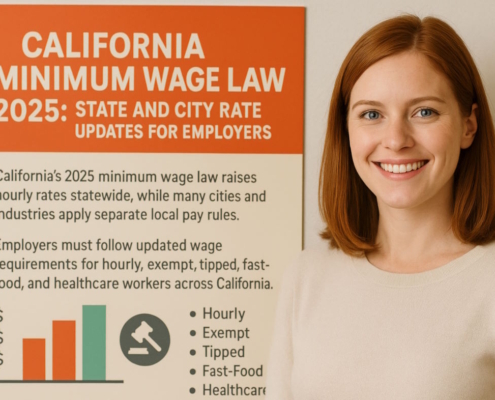Retaliation in the workplace
When an employee in California raises concerns about harassment, discrimination, illicit activities, or unsafe working conditions in the workplace, it is crucial to ensure the protection of their rights. Unfortunately, there are situations where employers retaliate against such employees.
Workplace retaliation is a concerning phenomenon that arises when employees face adverse actions from their employers in response to engaging in protected activities. Retaliation in the workplace retaliation can manifest in various forms, such as demotion, termination, unjustified reductions in salary, hostile work environments, or the denial of promotions. Recognizing the significance of safeguarding employees’ rights in such situations, retaliation lawyers play a crucial role in advocating for justice.
At Nakase Law Firm, our workplace retaliation lawyer is ready to assist workers who have experienced a retaliation in the workplace or have been terminated after voicing concerns about issues like discrimination, harassment, unpaid wage practices, unsafe working conditions, and other related matters.
What is retaliation in the Workplace?
Workplace retaliation occurs when an employer punishes a worker for speaking up against from employment discrimination, violations of laws, wage theft, unpaid overtime, minimum wage violation, rest break and lunch break violation, and much more. Workplace retaliation is a multifaceted issue that manifests in various ways. Unfortunately, overcoming workplace retaliation can pose challenges for employees. It is therefore critical to consult with a retaliation lawyer as soon as possible for guidance on how to proceed.
Regrettably, employers violate laws that prohibit retaliation and discrimination by retaliating against an employee who speak up, exposes, or actively opposes these unlawful actions. Workplace retaliation may include demotion, wrongful termination, and creating a hostile workplace environment.
Why hire attorney Brad Nakase to protect your rights against retaliation in the workplace?
First, you don’t have to come up with any money to hire Brad as your retaliation lawyer; he will work on a contingent fee, meaning that he will get a percentage of the money he gets for you. When gearing up to address issues with your current or former employer, having a skilled and accomplished team to protect your rights against workplace retaliation. Brad Nakase, an experienced retaliation lawyer, is fully equipped to protect your rights against retaliation in the workplace. We have a distinguished reputation for adeptly handling high-profile cases, securing judgments and resolutions against governmental bodies, major corporations, and public figures.
In handling workplace retaliation cases, we employ a contingency fee structure, making sure that our clients incur no legal expenses until we secure a favorable verdict or settlement on their behalf. We will help employees who experience retaliation in the workplace by doing the following:
What Role Does a Retaliation Lawyer Play in My Case?
Proving workplace retaliation can be challenging for an impacted worker. A retaliation lawyer possesses the tools and expertise necessary to uncover proof documenting the instances of retaliation. This includes obtaining all relevant paperwork related to the workplace retaliation and gathering witness testimonies verifying the events.
Moreover, a retaliation lawyer manages the negotiation process between the employee and the employer, aiming to recover the deserved compensation. Our lawyer will advocate for the rights of the employee and strive to achieve a fair resolution, which may include compensation for unpaid wages, coverage of legal fees, damages for pain and suffering, reinstatement, and potential punitive damages.
Retaliation lawyers ensure that the affected employee’s rights are protected throughout the legal process. They work to shield employees from further retaliation in the workplace.
Many retaliation lawyers operate on a contingency fee basis, meaning that clients do not incur legal fees unless a favorable settlement or verdict is obtained. This approach allows individuals to seek legal representation without the immediate financial burden.
Why does workplace retaliation happen?
Employers may participate in retaliation against workers for a variety of reasons. Retaliatory actions can unfold when a worker reports or raises concerns regarding the following:
- Refusal to participate in fraudulent or illegal activities.
- Deceitful or illicit actions committed by the employer.
- Notifying instances of workplace harassment or discrimination.
- Disclosure of wage violations.
- Providing assistance to fellow employees in their legal actions or complaints concerning unlawful practices.
The same regulations that shield employees from these kinds of workplace actions also offer safeguarding against workplace retaliation. The US Equal Employment Opportunity Commission (EEOC) and labor agencies in California provide robust protections against retaliation in the workplace.
Sometimes, workplace retaliation may culminate in wrongful termination. That said, it can also encompass actions like the following:
- Demoting the worker from their current position.
- Imposing heavier workloads on the employee.
- Denying promotions or raises.
- Unjustifiably reducing the employee’s salary.
- Assigning unfavorable shifts or job relocations.
- Issuing negative performance appraisals.
- Excluding the worker from training opportunities.
Can You Seek Compensation from Workplace Retaliation Cases?
If you or someone you know has faced workplace retaliation after reporting incidents of harassment, discrimination, hazardous working conditions, unfair wage practices, or other reportable transgressions, do not hesitate to seek help. Our retaliation lawyer Brad Nakase and his team are ready to protect you against retaliation in the workplace, striving to ensure your fair treatment. Our primary goal is to get the rightful compensation you deserve, which may include:
- Coverage of legal fees and court expenses.
- Unpaid wages owed to you.
- Reinstatement to your position, if applicable to the scenario.
- Damages to account for pain and suffering.
- Potential employer punitive damages.

































